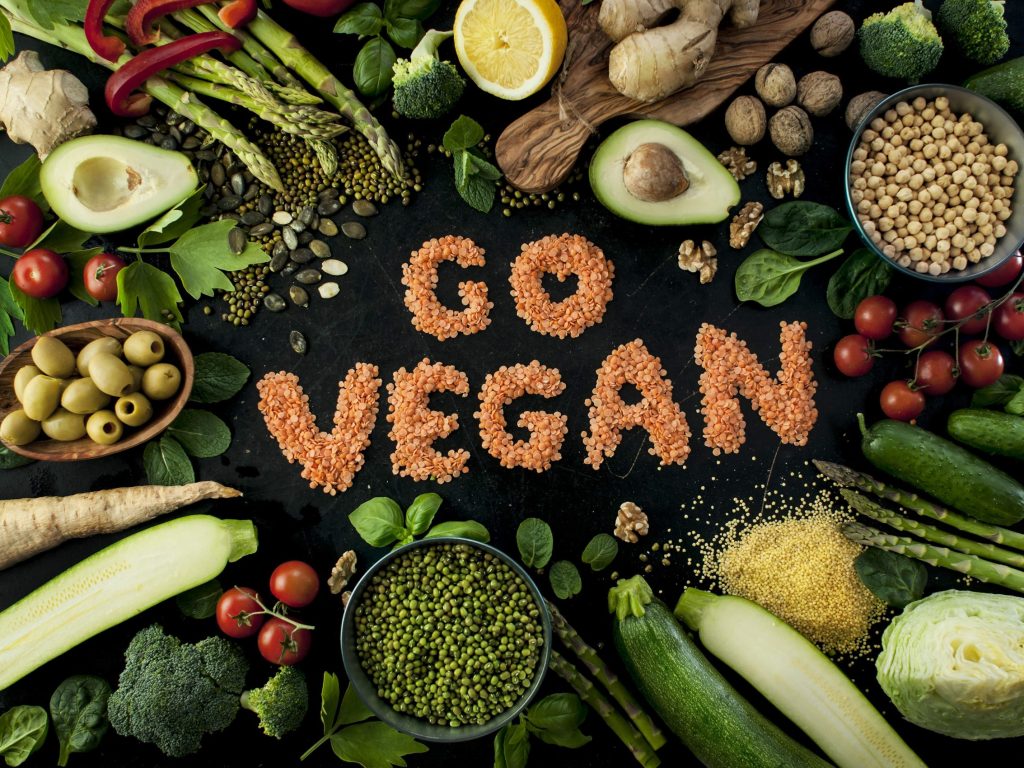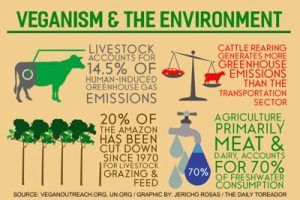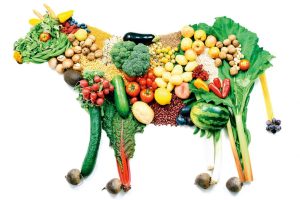The arrival of 2022 still hasn’t quite sunk in just yet, but with the new year comes new hopes, new achievements, and yet another ever-so-gloomy January, which we spend trying to right all wrongs of the last year. While many choose to actually obey their once-forgotten gym memberships, or give their liver a break from booze for the month, a newer trend has been gathering more and more attention since it was first created by a charity in 2014: Veganuary.
The idea of this “challenge” is to change your diet to a completely plant-based one for a whole month, in order to fully understand and appreciate the benefits of veganism — a notion which is attractive enough to engage around 580,000 people from 209 countries worldwide, each year.
While, more recently, many meat-selling companies, like McDonald’s, KFC and Burger King, have embraced the changes in many people’s lifestyles, and are now introducing their own vegan alternatives, many tabloid articles and TV presenters still continue to mock the idea of veganism as a whole, with figures like former editor of the Waitrose Food magazine, William Sitwell, responding to an idea of publishing more vegan or plant-based recipes with the suggestion of “killing vegans one by one”, or the Daily Mail running an article about standing up to “the vegan terrorists”, or the professionally bitter and insufferable Piers Morgan calling anyone who seeks vegan alternatives “PC-ravaged clowns”.
But why is it that so many people feel so threatened by a vegan lifestyle? What is it about the personal choice to not eat products made from or by animals that warrants such attacks from the media and press?
There are so many reasons as to why someone might choose to be vegan, spanning from the sheer images of the blatant cruelty against animals, to the impacts that eating animal products has on the environment, and even on our own health.
This is why such overt abuse is confusing to me. Especially when remembering that, on average, a vegan spares 200 animals from gory slaughterings every year. In fact, over 50% of people who are vegan or vegetarian say that they were prompted to cut meat out of their diet because of the horrific treatment of livestock.
The image of a cow being ruthlessly executed at the average age of 5, when it could be perfectly capable of living for 20 years (were it not imprisoned in a factory-farm), or the 40 million day-old male chicks in the UK that are gassed or macerated, simply because they are deemed as useless and not worthy of life, of even the 308,000 marine mammals that are drowned each year after becoming entangled in fishing equipment, would seem to be enough to persuade any avid meat-eater to adopt a more plant-based diet, and yet there are still so many people that respond with a simple, careless shrug of the shoulders, as they bite into their chicken-shop lunch.
It always makes me wonder how we can claim to be a nation of such animal lovers, with some people proudly treating their pets better than their own children, while we continue to condone the abuse of livestock; if we were told that each year, instead of lambs, around 4 million newborn puppies will die within a few days of birth, due to malnutrition, disease or exposure to cold weather, I can guarantee that the whole country would join together to riot against these farms, and that every single one would be under strict surveillance and investigation, and that many would even be shut down immediately.
I don’t mean to bombard you with endless graphic images — and I apologise if these facts haunt you for the rest of the month — but the simple reason is that, if you don’t know these statistics, there’s not much to stop you agreeing with the Piers Morgans or William Sitwells of the world, who regularly feel attacked (even though they continue in their places of privilege) and so believe they can, in turn, attack anyone who disagrees with them.
This is all not to mention that the continued farming and production of animal products is steadily pushing us further into environmental doom. In other words, we’re killing one another, and ourselves, for a burger.
It’s estimated that, if all meat-eaters switched to a plant-based diet, the total greenhouse emissions related to the production of food would be roughly halved, immediately wiping out the 65% of nitrous-oxide emissions that are produced through raising livestock, a gas which has 296 times the global warming potential of carbon dioxide, and lingers in our atmosphere for up to 150 years.
Imagine if 1 billion cars, worldwide, were taken off the road. This would actually solve 15% of global warming pollution by 2050, which is the exact same result as if people were to shift their eating habits to plant-based ones. It would also reduce our daily carbon footprints from 10-16 pounds of CO2 per day to 6-6.5 pounds, and would save the 18 million acres of forest that are lost each year to mass producers of food, who often burn the land, thus killing wildlife and destroying habitats — many people have misunderstood this action as something done by plant-based companies, since much of this land is used for the farming of products such as soy, but the reality is that this produce is actually used to feed the millions and millions of livestock animals across the world.
So, just to clarify, we’re destroying our planet — the only home we have — in order to produce food, not for ourselves, but for the animals that we plan to pump full of this food, until the day that we slaughter them, for something that is unquestionably not worth it. At all.
It’s not just the act of producing these foods that is harmful to us (as well as other animals); the fact that we continue to eat these foods is shocking, when we remember that, according to the NHS, eating red and processed meats rapidly increases the risks of developing and dying from cancer, heart disease, strokes and diabetes.
And yet, it’s the vegans and vegetarians that are always slammed for having unhealthy diets.
Funnily enough, contrary to what you might have heard, plant-based diets do not revolve around grass or leaves, but rather are full of the same (and even more) proteins, vitamins and minerals that can be found in animal products, through foods like vegetables, tofu, beans, grains and legumes. There are also endless blogs and articles about how to use these ingredients in every type of meal, while still being able to enjoy varied, and actually appetising dishes, from all cuisines.
I’m not preaching that we should all find a way to go back to the start of the year and partake in Veganuary. But even just taking the smaller steps, like asking where our food in really coming from, and slowly integrating more plant-based alternatives into our diets is the perfect way to start. I’ve laid out the facts, with no asterisks or hidden truths, and all the evidence leads to only one conclusion: adopting a plant-based diet is one of the best methods to demonstrate against poor animal welfare, reduce our collective carbon footprint, and take care of our health.
It’s not the most difficult or radical change to be making in our lives, so why to we still view veganism as some extreme challenge, or preposterous fad?
And, besides, when did we even decide that we had to choose between protecting literally everything and everyone around us and eating good food?
By Sarah Clif, student






